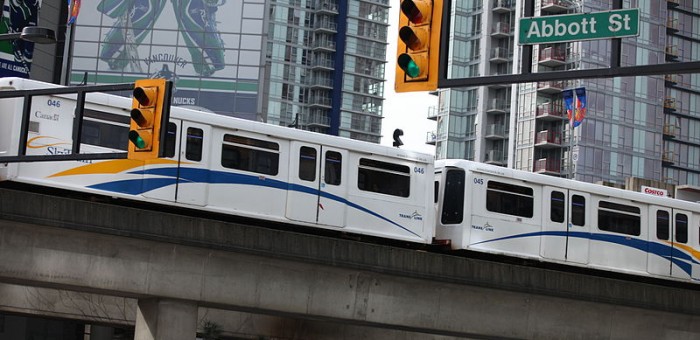Bill 2 — BC Transportation Financing Authority Transit Assets and Liabilities Act
On Monday I rose to speak at second reading in support of Bill 2-2015 BC Transportation Financing Authority Transit Assets and Liabilities Act.
Currently in Vancouver, the rapid transit assets owned by the province are split between three crown corporations.
- The Expo Line and the West Coast Express is held by B.C. Transit
- The Millennium Line is held by Rapid Transit Project 2000 Ltd.
- The Evergreen line is held by B.C. Transportation Financing Authority
Bill 2 would consolidate all these assets under the BC Transportation Financing Authority while maintaining the level of service. This would allow for streamlining, cost saving and better management. While this bill helps to cut down on bureaucratic clutter, it does not deal with the larger issues facing transit in Metro Vancouver.
Below is the text of my contribution to the debate.
My contribution to the debate at second reading
I rise to speak just briefly at second reading of this bill to outline an issue that I think may have been overlooked over this bill. As the bill notes, there are currently…. These rapid transit assets owned by the province are split amongst three Crown corporations in the area: Expo Line and the West Coast Express held by B.C. Transit, the Millennium Line held by Rapid Transit Project 2000 Ltd. and the Evergreen line held by B.C. Transportation Financing Authority. Bill 2 would consolidate these into one entity while maintaining the level of service.
Now, it’s hard to argue that consolidation of assets spread around three is not actually a good thing. It would streamline administration, provide cost savings and, presumably, better management of the whole system at all. These assets, of course, would be transferred into and operated by TransLink.
Cutting down the bureaucratic clutter in the region of Metro Vancouver, I would argue, is a good thing. Nobody quite knows who is on second base at times or first base at times with the plethora of these Crown corporations with their different jurisdictions.
But here is the problem. TransLink has lost the support of the public. Nowhere is this more true than seeing the discussions happening with respect to the upcoming plebiscite in Vancouver.
This no longer becoming a question of: should Vancouver have transport or not? This is not a question of: is the PST increase a means and ways of funding the transit improvements in Vancouver? What’s happening in Vancouver is that this plebiscite is becoming a plebiscite on TransLink, and that is most unfortunate.
That’s most unfortunate because here in this bill we have bringing together assets into a Crown corporation that has lost the public trust. In doing so, the public will question the rationale behind this. The public will question whether or not bringing in TransLink is the right thing to do. The public will question whether or not this is actually going to improve service.
Accountability is the keystone — and was the keystone — of the original vision of TransLink. It was envisioned as a regional authority to be run by a local and elected board. But now, of course, it’s no longer the case. We have an appointed board. We have an appointed board which is not accountable to the voters. The council of mayors, which makes recommendations and have to live with the consequences of decisions being made, is elected. But they don’t actually have the control over the process and decision-making.
This bill is bringing more assets into an organization, TransLink, a Crown corporation that will have more control and more voice over what the mayors must implement, at the same time as it’s losing the confidence of the general public. In order to deal with the root cause, the root problem, that exists — that is, the lack of public support for TransLink — we’ll need to explore, in committee stage, how the government plans to actually assure us that as it brings more and more assets into the Crown corporation for transit, it does so in means and ways that do not ignore the underlying fundamental issue, which is rebuilding public trust and public confidence in TransLink.





Leave A Comment